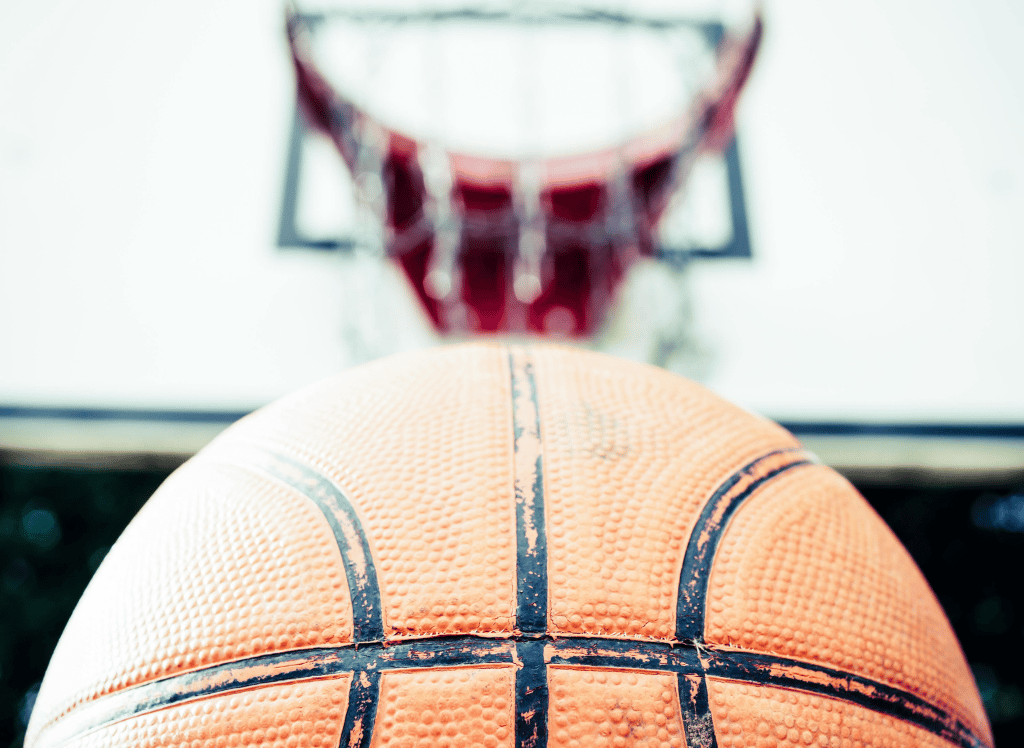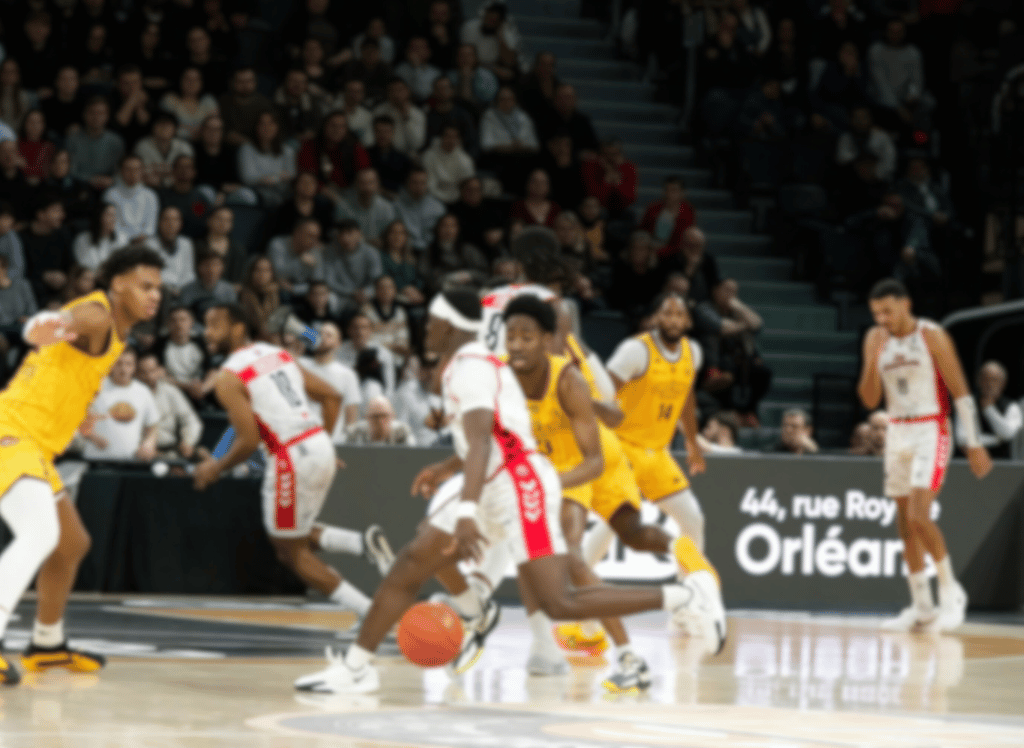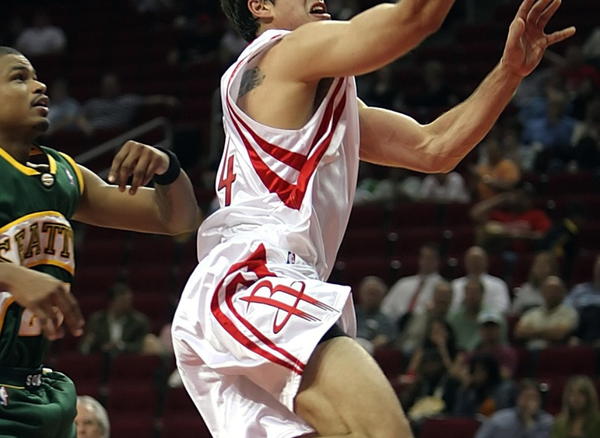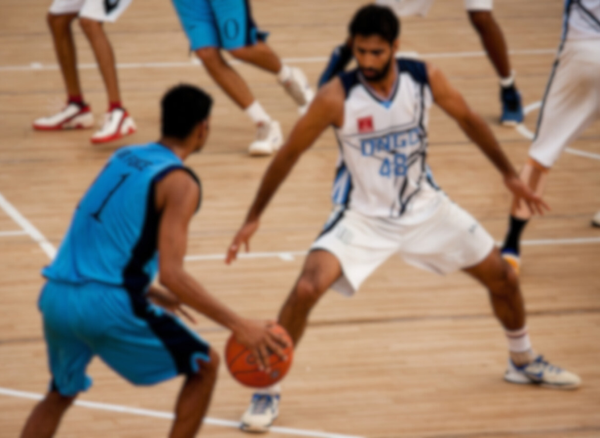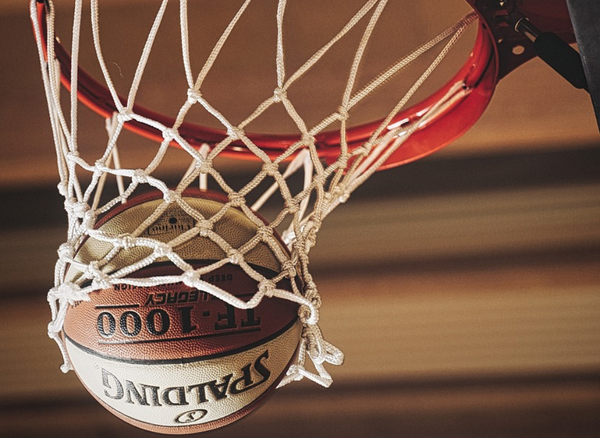Defense in basketball isn't just about being the bad guy who ruins all the fun. Nope, it's about being the party pooper with style, the ninja in sneakers, the shadow that haunts every offensive player's dreams. So, lace up your shoes, put on your game face, and let's get defensive.
The Stance of Steel
Before you can become the Gandalf of the basketball court, shouting "You shall not pass!" you need to master the basics. The defensive stance is your bread and butter, your Iron Throne, your... well, you get the picture. Feet shoulder-width apart, knees bent, weight on the balls of your feet, and hands up like you're ready to conduct an orchestra of chaos. This stance isn't just a pose for your next basketball-themed photoshoot; it's the starting block for every defensive move you'll make.
Now, maintaining this stance throughout the game is like trying to hold a smile during a root canal—it's tough, but the results are worth it. A solid stance keeps you ready to move in any direction, and trust me, your opponent will be moving more than a hyperactive squirrel.
The Dance of Defense
Imagine you're in a dance-off, but instead of busting a move, you're busting your opponent's scoring chances. Sliding your feet without crossing them is the moonwalk of basketball defense. It's all about fluidity, baby! Quick slides to the left, swift shuffles to the right, and the occasional drop-step when your opponent tries to fake you out.
But remember, grasshopper, as you glide across the court like a swan on ice, never, and I mean never, let your feet get too cozy and cross. That's the quickest way to trip into a blooper reel.
Reading Your Opponent
Defense is a mind game, and your eyes are your best weapon. Keep them on your opponent's torso; it's less likely to fake you out than their shifty eyes or fancy footwork. By doing this, you become a human lie detector, able to predict their next move with the accuracy of a fortune cookie.
And when you can anticipate where they're going, you can be there first, setting up shop and ruining their plans like a surprise tax audit.
The Art of Distraction
Your hands are like two pesky flies at a picnic, constantly swatting at the ball and obstructing your opponent's view. But this isn't just wild flailing; there's a method to the madness. Keep one hand ready to challenge shots and passes, and the other mirroring the ball, as if you're trying to give it a high-five for its poor life choices.
This hand jive isn't just annoying; it's effective. It's about creating doubt and hesitation, which, in basketball, can be the difference between a swish and a miss.
Communication is Key
Defense is a team sport, and silence is definitely not golden here. You need to be the Morgan Freeman of the court, narrating every plot twist and turn. Call out screens, communicate switches, and if you see something, say something. It's like being in a noisy library; you have to whisper-yell your way to coordinated defense.
This constant chatter isn't just for gossip; it's the glue that holds your team's defense together, turning you into a single, terrifying organism.
Developing Court Awareness
Having eyes in the back of your head isn't just for parents anymore. On defense, you need to develop a sixth sense for where everyone is on the court. It's like playing a video game with the map always on—you need to know where the bad guys (a.k.a. the other team) are at all times.
This awareness lets you anticipate plays, make smart help decisions, and basically be the psychic friend every team needs.
Protecting the Paint
The area around the basket is your sacred ground, your fortress, your VIP lounge, and you're the bouncer. Keeping your opponent out of the paint is like keeping squirrels out of a bird feeder—it requires vigilance, determination, and maybe a little bit of crazy.
By protecting the paint, you force your opponent to take tougher, lower-percentage shots. It's the basketball equivalent of making someone text their crush with a flip phone.
Stealing Like a Pro
Steals are the highlight reel of defense, the cherry on top of your sundae of disruption. But picking pockets isn't about being sneaky; it's about being smart. Watch for lazy dribbles, telegraphed passes, and distracted players. It's like waiting for the perfect moment to snatch the last slice of pizza—timing is everything.
And when you do get that steal, it's not just a turnover; it's a morale-crushing, crowd-pleasing, ego-boosting moment of glory.
Taking Charges Like a Champ
Taking a charge is the ultimate sacrifice, like jumping on a grenade or eating the last fry for the team. It's about planting your feet, squaring your shoulders, and taking one for the squad. When done right, it's a thing of beauty, a moment that can shift the momentum and get the other team's star player in foul trouble.
Sure, it might hurt, but so does stepping on a LEGO, and you've survived that, right?
Conditioning and Mental Toughness
All the tips in the world won't help if you're gasping for air like a fish out of water. Conditioning is the unsung hero of defense. It's what keeps you in your stance in the fourth quarter, what lets you slide your feet when your legs feel like jelly.
And let's not forget mental toughness. Defense is about grit, about getting knocked down and getting up again, about being the person who's still smiling when everyone else is too tired to remember the score.
FAQs
How important is footwork in basketball defense?
Footwork is the secret sauce, the magic ingredient, the... well, it's really important. It's the foundation of good defense, allowing you to stay in front of your opponent and react quickly to their moves. Think of it as the choreography to your defensive dance routine.
What's the best way to communicate on defense?
Loudly and clearly, like an auctioneer with a megaphone. Use short, specific calls to alert teammates to screens, switches, and other important info. It's like being the director of a very athletic orchestra.
How can I improve my defensive reaction time?
Practice, practice, and more practice. Drills that focus on quick movements and decision-making can help. Also, playing against faster opponents will force you to up your game. It's like training to be a superhero, but with less spandex.
Summary
Defense in basketball is about more than just physical skills; it's a mental battle, a test of wills, and a whole lot of fun if you approach it with the right attitude. From mastering the fundamental stance to developing court awareness and taking charges, every aspect of defense can be improved with practice, communication, and a dash of humor. Remember, the best defenders are the ones who enjoy the challenge, who relish the chance to be the hero in the shadows, and who never stop moving—except maybe for a quick water break.




